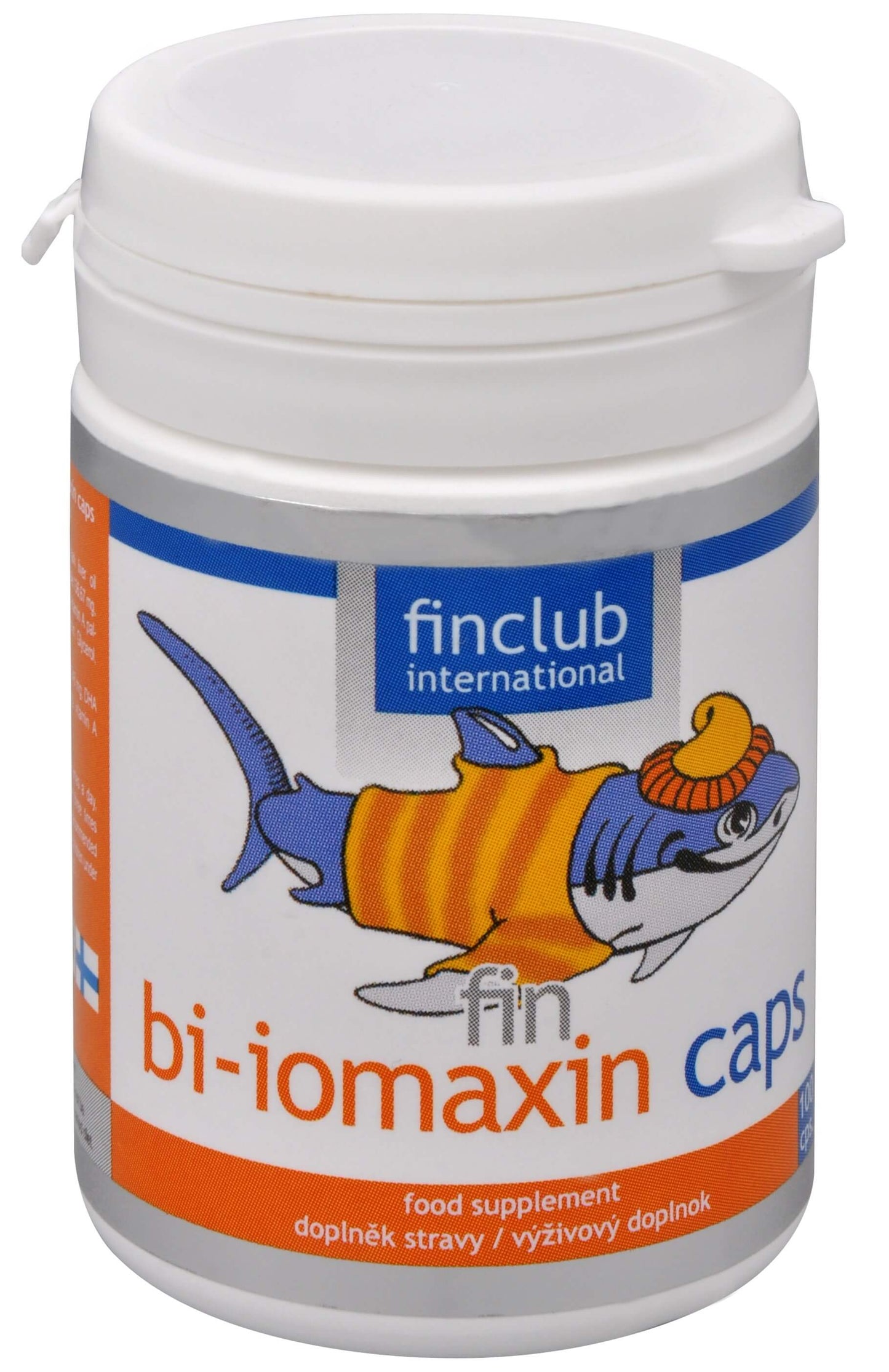Finclub
Finclub Fin Bi-iomaxin caps 100 capsules
Finclub Fin Bi-iomaxin caps 100 capsules
Couldn't load pickup availability
The dietary supplement Fin Bi-iomaxin caps contains shark liver oil and fish oil concentrate - a source of omega-3 unsaturated fatty acids DHA and EPA , which contribute to the normal functioning of the heart (a beneficial effect is achieved with a daily intake of 250 mg of EPA and DHA).
Composition in 1 capsule
Additives:
gelatin, glycol (moisturizing agent), purified water
Dosage
Take 2 capsules 3 times a day, with meals. Children from 3 years old 1 capsule 3 times a day. For optimal effectiveness, we recommend using it for at least 2-3 months.
Packaging
100 capsules - dose for about 2 weeks
Content weight: 45 g
Notice
Dietary supplement. The product is not intended for children under 3 years of age. It is not a substitute for a varied diet. Do not exceed the recommended dosage. Store out of reach of children. Country of origin Finland.
Composition in 1 capsule
- It contributes to the normal development of the vision of infants up to 12 months of age. A beneficial effect is achieved with a daily intake of 100 mg of DHA. When used in infant formula, the food must contain at least 0.3% DHA of the total fatty acid content, otherwise the stated benefit cannot be claimed.
- The intake from the mother's body contributes to the normal development of the eyes of the fetus in the mother's body and infants fed with breast milk. A beneficial effect is achieved with a daily intake of 200 mg of DHA in addition to the recommended daily intake of omega-3 fatty acids for adults, i.e.: 250 mg of DHA and eicosapentaenoic acid (EPA).
- The intake from the mother's body contributes to the normal development of the brain of the fetus in the mother's body and of infants fed with mother's milk. A beneficial effect is achieved with a daily intake of 200 mg of DHA in addition to the recommended daily intake of omega-3 fatty acids for adults, i.e.: 250 mg of DHA and eicosapentaenoic acid (EPA).
- It contributes to the maintenance of normal brain activity. A beneficial effect is achieved with a daily intake of 250 mg of DHA and only with foods that contain at least 40 mg of DHA per 100 g per 100 kcal.
- It contributes to the maintenance of normal vision. A beneficial effect is achieved with a daily intake of 250 mg of DHA and only with foods that contain at least 40 mg of DHA per 100 g per 100 kcal.
- It contributes to maintaining a normal level of triglycerides in the blood. A beneficial effect is achieved with the intake of 2 g of DHA per day in combination with eicosapentaenoic acid (EPA). Supplemental intake must not exceed 5 g per day of a combination of EPA and DHA and cannot be claimed in foods intended for children.
- Contributes to the protection of cells from oxidative stress if there is at least 1.5 mg of vitamin E in one dose.
- If there is at least 120 μg of vitamin A in one dose, it can be claimed:
- It contributes to maintaining the normal state of the mucous membranes
- It contributes to maintaining the normal condition of the skin
- It contributes to the maintenance of normal vision
- It contributes to the normal function of the immune system
- It participates in the process of cell specialization
- Contributes to normal iron metabolism
- If the dose contains at least 0.75 μg of vitamin D, then it can be claimed:
- It contributes to the normal absorption/utilization of calcium and phosphorus
- It contributes to the normal level of calcium in the blood
- It contributes to the maintenance of normal bone condition
- It contributes to the maintenance of normal muscle activity
- It contributes to maintaining the normal condition of the teeth
- It contributes to the normal function of the immune system
- It is involved in the process of cell division
- It is needed for normal growth and bone development in children
Share


